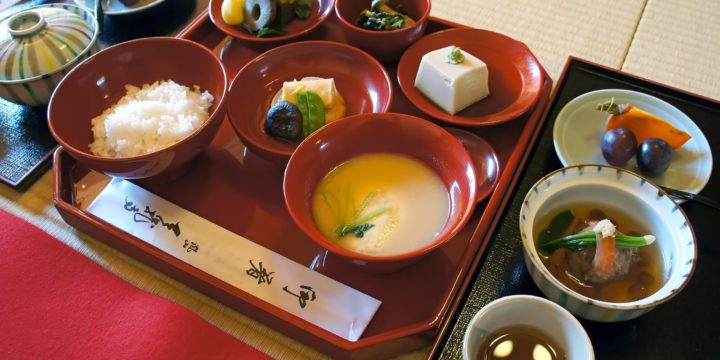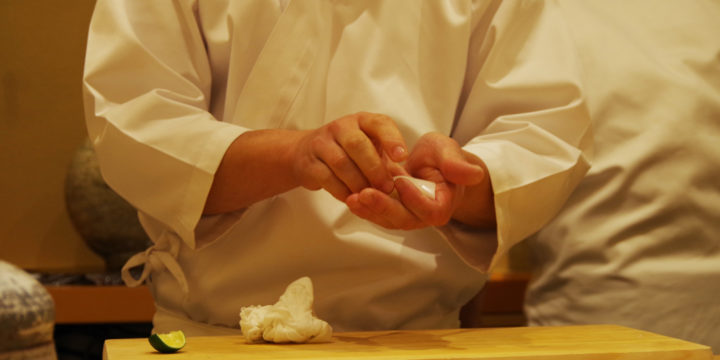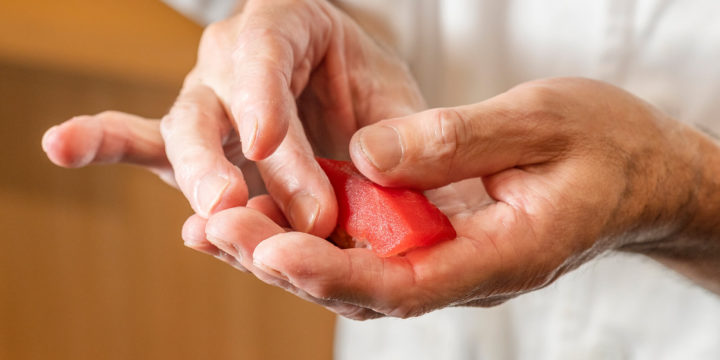Which Should We Hire, Young Japanese Sushi Chefs in Their 20s or Experienced Chefs in Their 50s?
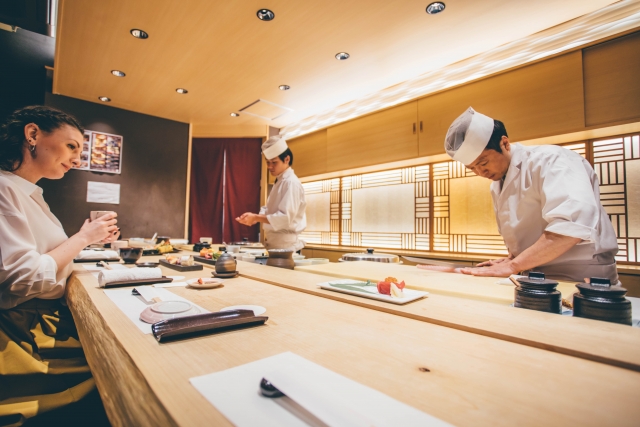
If you are a restaurant owner or hiring manager, you may have had an experience where you posted a job ad to attract young Japanese sushi chefs in their 20s or 30s, but applicants turned out to be in their 40s or 50s. When you try to recruit a Japanese sushi chef, there are usually two main challenges: it is difficult to find one in the first place, and furthermore, not many applicants are young. Why is it such a hard task to find a young Japanese sushi chef? And is it even wise to avoid hiring sushi chefs in their 50s? This article will answer these two questions.
1. Why Is It Difficult to Hire a Young Sushi Chef?
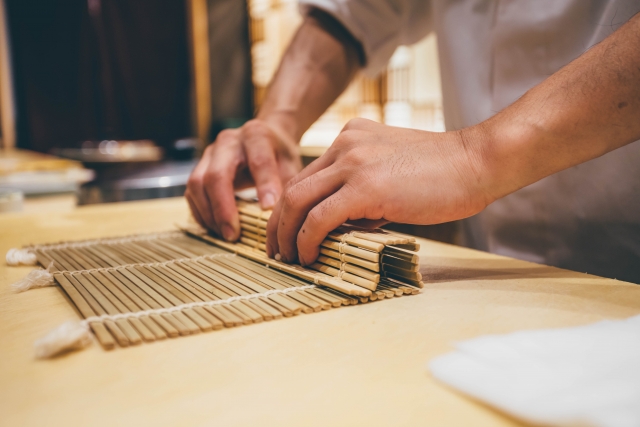
2 Million People Are 50 Years Old, While 1.2 Million People Are 20 Years Old in Japan
It is worldly known that Japan has been seeing a low birth rate and an aging population. Since around 2016, the population has been decreasing and the current number of 120 million is expected to reach 80 million in 2060.
There are about 2 million people who were born in 1972 (currently 50 years old), whereas only 1.2 million were born in 2002 (20 years old). Simply put, sushi chefs in their 20s can be fewer than those in their 50s by 40%.
For your reference, the estimated number of the babies born in 2022 is about 800,000. It will get more and more difficult to find a Japanese sushi chef.
More Youth Want to Stay in Japan
According to a 2017 survey conducted by Sanno University to measure global awareness of new employees, about 60% of them (in their early 20s) answered that they were not interested in an opportunity to work abroad. What concerns us is that the answer accounted for 30% in 2004, but the number had been increasing every year and amounted to 60% in 2017.
More young people want to live in Japan at their own pace, rather than having a tough time by working in a different culture and language. As a result, fewer and fewer youths have the guts to jump in the overseas sushi industry.
Competition for a Few Young Sushi Chefs
Of course, many young sushi chefs have an aspiration to take advantage of the sushi boom and work abroad. Yet you need to have a competitive salary for successful hiring, since restaurants around the world are seeking after these chefs as well.
It is crucial to understand this status quo of the global sushi chef market as of 2022.
2. Difference between Sushi Chefs in Their 20s and 50s
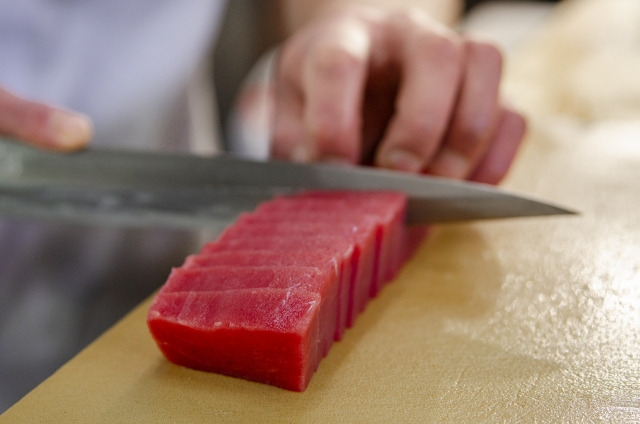
Then, what are the pros and cons of hiring from the two groups of Japanese sushi chefs—the chefs in their 50s that account for a large number of the market and the chefs in their 20s that decreased by 40%?
Mobility
If you want someone with the mobility to work abroad, you should look for people in their 20s, as they usually have not established their career plan yet. The average age of first marriage is around 30 in Japan, so you will find a lot of singles in their 20s, who are more likely to change their jobs under the right conditions.
Communication Skills
If communication skills are essential requirements, you may want to find chefs in their 20s, since they tend to adapt to the new environment more easily. Most of them should learn English quickly compared to those in their 50s as well.
Management Skills
For a position that oversees the staff, chefs in their 50s are more fitting. In this age group, there are more chefs experienced in on-site management as well as cooking.
Ability to Serve Omakase and A la Carte Dishes
The last decade has seen more omakase style restaurants in Japan and overseas, which serve a prix fixe menu. Yet before that, it had been traditional in Japan that customers order what they like at the counter and the chef makes it in front of them.
Many chefs who are currently in their 50s have experience in serving a la carte dishes at various customers’ requests. On the other hand, some chefs in their 20s are more used to providing pre-determined courses and not as skilled in catering to the customers’ needs.
The chefs in their 50s are better at remembering the regulars’ liking or dealing with a sudden request, since they have known the days when sushi was mainly served in a la carte style.
Visa
If you want to have a visa issued easily, you should think about hiring chefs in their 50s. Since many Japanese people start their career in the restaurant industry in their 20s, it may be difficult to find an applicant who is eligible for a work visa that requires a certain length of employment. The applicant could apply for a working holiday visa even without sufficient work experiences, but the visa is limited for one-year stay and not ideal for mid- to long-term employment.
Salary
Japanese sushi chefs are paid about 2.5 to 6 million JPY(approx. 21,000 to 50,000USD) in Japan. In general, one’s salary increases with more experience. There are many Japanese restaurants that want young chefs, under the assumptions that it is easier to offer a higher salary than the current one or that young chefs tend to listen to the owner more and be flexible. Yet there are a lot of restaurants in the world that want young chefs, so the competition is intense, and you need to come up with better conditions than others.
If you are preoccupied with hiring a young chef based on assumptions, you may not be able to find the staff necessary for your restaurant and eventually lose your business opportunity, as the birth rate in Japan is declining more rapidly. In Washoku Agent, you can find a wide range of chefs, from those in their 20s to 50s. If you have a problem in hiring a chef, changing the target age group may lead to a good fit for your restaurant. Contact us!
4. What If I Have a Problem in Hiring?
“I do not know what my restaurant should feature to attract Japanese chefs.”
“I have an idea of the chefs I am looking for, but I do not know how to find them.”
“We tried to recruit on our own before without success, so we want to find a truly skillful chef this time.”
“Since no staff members speak Japanese, we want to entrust the whole task of hiring Japanese chefs to someone else.”
If you have a problem in recruiting quality Japanese chefs, feel free to contact us Washoku Agent!
- How to Optimize the Performance of a Japanese Chef Who Does Not Speak English
- What Is High-End “Tachigui” Sushi Opened by Omakase Sushi Restaurants?





